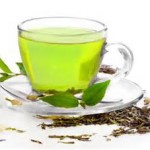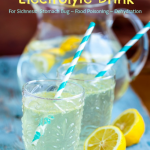Appendicitis – Prevent / Treat with High Fiber, Veggies, Supplements
Note: D-Mannose is also said to be good for appendicitis
Countries with lower incidences of appendicitis also tend to have more fiber in their people’s diets, compared to other countries. It would therefore be logical to assume that a high fiber diet may help reduce your chances of developing appendicitis. One theory is that with a high fiber diet the resulting softer stools are less likely to get trapped in the appendix.
The appendix is a small pouch shaped like a small finger. It is on the right side of the abdomen, connected to the colon.
Experts are not sure what the appendix is for. Charles Darwin wondered whether it might have been an organ our ancestors used to digest plants. Recent studies indicate that the appendix may be a dedicated environment for friendly bacteria which facilitate digestion and fight infection.
a lot of water with ACV to calm down any infection.
You must eat lots of veggies and fiber on a regular basis to not get appendicitus
American medical doctors are taught to remove the appendix immediately. However this still doesn’t solve the problem…your problem is your diet. And when you remove your appendix, you are handicapped. Your appendix excretes oil and good bacteria when needed. Most people who remove their appendix end up with colon cancer. So do the research. Also turmeric helps with the inflammation & pain. Along with garlic & ginger.
I was suffering sooooo much that I cut back on eating by 70% and just started fasting and drinking an anti-infection drink fresh organic lemons, ginger and cayenne diluted with alkalized water plus six garlic oil pills I did this 3 x a day . To really hit the infection hard, . I did this in addition to the anti infection drink I did this for ONLY THREE DAYS ( I went to the herb store and the clerk ground up 100% pure fresh rosehips and I capped them do not buy rosehips with c ) Day 1- I took TEN 100% pure rosehips caps to see if I was going to have an allergic reaction since I had no reaction. I proceeded to DAY 2, I took 22 rose hips caps, Yes I said 22! DAY 3, I took 24 rosehips caps. You DO NOT take a high dose of Rosehips for more than two days! . The Rosehips were extraordinary it seemed to work and my suffering decreased by 90%. I want to give credit where credit which is Robert Von gave me the Rosehips and anti-infection drink method He is amazing. By the time I was diagnosed my suffering decreased by 97% . Anyhow it is good first to get a diagnosis and work from there. I have insurance the medical cost out of pocket is about $4000 plus no diagnosis and the Naturopathic method cost $ 350.00 including diagnosis and cure.
Somebody submitted a post this week regarding belly button pain, probably appendicitis pain. I recommend the Water sea salt intestine cleanse it worked for me, I had the same symptoms for weeks, with couple of short recurring sharp pains, was unable to walk for couple of minutes, and interesting that was located mainly on the belly button area spreading the pain around it, and not in the lower right side. One day I wake up with unbearable pain I realized could be only appendicitis, searched the internet for any remedy and I decided to give it a try to water and sea salt, it took me not more than two hours to cleanse clear, and I had mostly liquidly food for the rest of the day, repeated the next day although it was not necessary. Hope it helps somebody!
However, eating a diet that includes fresh vegetables and fruit may lower your risk of getting appendicitis.
study did suggest that the more fresh and frozen green vegetables and fresh and processed tomatoes people ate, the less likely they were to get appendicitis. Eating green vegetables — particularly cabbage, cauliflower, peas, beans, Brussels sprouts and maybe tomatoes — may protect against appendicitis.
Home Remedies for Appendicitis:Beet, Cucumber, and Carrot Juice:The natural and raw juices of these three vegetables can serve as an excellent natural cure. Squeezing out just the juice of beets, cucumber and carrots and then mixing them altogether creates a powerful home remedy for appendicitis. This should be consumed 1-2 times a day as the symptoms persist and can provide quick relief for the individual suffering from any associated problems. Fenugreek:This is an excellent herb that works as a natural cure for so many conditions, and it is one of the most recommended home remedies for appendicitis. Here either boiling and eating the fenugreek seed or more effectively creating a tea out of this herb works to get rid of any symptoms associated with appendicitis. This is highly recommended and will get the results individuals are after. Ginger and Turmeric:Combining these two spices and herbs make for one powerful natural cure. These two work together in conjunction to get rid of any inflammation that may be associated with appendicitis and act as the source of the actual pain. Therefore ensuring that you include both herbs in your diet each and every day can work as a great home remedy for appendicitis and get rid of the symptoms quickly. |
Prevention is worth a pound of cure. The best way to prevent appendicitis is to eat plenty of green leafy vegetables. More about this is covered below under “Nutrition”. However, if you find you do have symptoms of appendicitis already, there are some herbs that have been known to help reduce the effects. These herbs include: detoxifying and fever-reducing herbs (Flos lonicerae, Fructus forsythiae, Herba taraxaci, Patrinia scabioseafolia, Gypsum fibrosum), circulation-enhancing herbs (Semen persicae, Radix paeoniae rubra, Squama manitis, Spina gleditsiae), and laxatives (Rhizoma rhei, Mirabilitum depuratum). Belladonna and Bryonia are classic homeopathic remedies often used for an inflamed appendix with symptoms. Patients who used the appropriate homeopathic remedy plus conventional Western medicine found relief from their symptoms and cleared up their appendicitis quickly.
Nutrition
A healthy diet which emphasizes raw, fresh vegetables and fruits, whole grains and at least eight glasses of liquid a day will provide the fiber needed to prevent constipation and minimize the risk of the appendix becoming infected. Raw food also provides enzymes, which help boost the immune system. Two tablespoons of flax seeds daily will keep stools soft and prevent constipation. Take garlic regularly to boost the immune system. Eat lactic acid fermented foods such as natural, unsweetened yogurt, kefir and sauerkraut regularly to keep the bacterial culture in the colon healthy
Appendicitis generally affects people aged between 10 and 30, but it can strike at any age. Approximately 250,000 appendectomies are performed in the United States each year to treat appendicitis.
If left untreated it can even rupture resulting in shock or peritonitis, which can be fatal for the sufferer. This can occur anytime between 48-72 hours once the symptoms start. A ruptured appendix is treated as a medical emergency as it may form an abscess or even spread to the entire abdomen.
Causes of Appendicitis
The exact causes of appendicitis are not really understood, but there are some possible causes that most health experts agree upon. Because of the proximity of the appendix to the large intestine it is very likely that many cases of appendicitis are caused when small pieces of feces get trapped in the appendix. This causes an Even though the exact cause of appendicitis is unknown it is believed that blockages in the appendix by fecal matter, foreign matter and sometimes tumors can cause this condition. Thick mucus which builds up within the appendix or fecal matter from the cecum which enters the appendix can cause appendicitis. This stool and mucus may become hard and block the opening of the appendix. Once this blockage occurs bacteria and viruses start entering and infecting the walls of the appendix. Viruses, fungi, bacteria and various other parasites can cause infections which can lead to an inflammation in the tissues in the walls of the appendix. Cytomegalovirus, Yersinia species, Mycobacteria species, adenovirus, pinworms, Histoplasma species and actinomycosis can all cause such infections. When this infection starts spreading through the appendix walls it can lead to a rupture which can cause further infections to spread through the abdominal cavity. Inflammatory bowel diseases like Crohns disease can also cause tissue inflammation which can result in appendicitis. Unhealthy eating habits and junk foods can also result in appendicitis. Food that is infected or prepared under unhygienic conditions can be one of the causes of this condition. Therefore it is very important to eat good hygienic food to avoid such health complications. Appendicitis is neither contagious nor hereditary. Young people between the age of 11 and 20 tend to be the most affected group with appendicitis. Occurrence of this condition also increases in the colder months between October and May.
Remedies for Appendicitis
An inflamed appendix is usually surgically removed under general anesthesia. This kind of surgery is known as appendectomy. Doctors prescribe pain killers and other antibiotics to treat infections irrespective of whether the appendix has ruptured or not. Laparoscopy or laparotomy are less invasive procedures that are also performed on appendicitis patients. Prevention is always better than cure and the best way to prevent appendicitis is by following a few simple dietary and lifestyle changes. A high fiber diet full of fresh fruits and green leafy vegetables is the best way to avoid this condition. Beetroot, carrot and cucumber juices are all very helpful in naturally preventing and treating appendicitis. Regular intake of water and other healthy fluids is very helpful in flushing out harmful substances and toxins from the body and also preventing constipation problems. Nutrition plays a vital role in the prevention of this condition and a daily diet which includes plenty of vegetables, fruits and whole grains is very helpful in minimizing the risk of appendicitis. There are also a number of home remedies which can help in preventing and treating appendicitis. Small quantities of green gram consumed thrice everyday is a useful treatment for acute appendicitis. One tablespoon of borage juice taken everyday is very helpful in treating the fever caused by appendicitis. Chronic appendicitis can also be treated by consuming a liter of buttermilk everyday. Whole wheat including wheat germ and bran should be consumed regularly to avoid appendicitis and various other digestive ailments.
Diet for Appendicitis
For a person suffering from appendicitis, the first and most important thing to keep in mind is to avoid eating anything solid and stick to just drinking water to flush out harmful substances from the body. After the first three days, the patient should only be allowed to drink fresh fruit juices for the next few days. After 3-4 days the patient should be put on a complete fruit diet for the next 5-6 days. Once the symptoms start subsiding the patient should start following a well balanced diet that is full of fresh fruits, vegetables, whole grains, nuts and seeds. Water and fluid intake should also be high to avoid accumulation of toxins in the system. Foods like dairy products, meats and refined sugar products should be completely avoided while recovering from appendicitis. Simple recipes like brown rice with vegetables such as green peppers, broccoli, cauliflower, beans and peas are easy to digest and are high in fiber which is very beneficial to appendicitis patients. Other preparations like chicken soup and steamed vegetable salads are also very good for recovering patients. Vitamin B, C and E supplements should also be given to patients regularly in addition to their daily diet. Vitamin E supplements help in the healing of the surgery wounds while Vitamin C helps in supporting the immune system and preventing infections. B vitamins on the other hand are excellent for providing increased body strength which is required to recover from this condition and also the surgery. Doctors also prescribe Lactobacillus acidophilus complex to re-establish healthy intestinal and digestive functioning.
Suggestions for Appendicitis
The most important responsibility of caregivers is to make sure that the patient maintains a healthy well balanced diet. In addition to this, sometimes doctors even advise caregivers to give the patient regular enemas for faster detoxification and to speedup up the recovery process. Hydrotherapy can also be given over the abdominal region in addition to conventional treatment methods. It is also important for caregivers to monitor the patients condition regularly and report any sudden changes in the patients condition to the doctor at the earliest. Even simple activities like sitting up or lying down should be aided by the caregiver especially when the patient is recovering from abdominal surgery. Ice packs or cold compresses can be applied to the patients abdomen to ease post surgery pain. In addition to these, it is also the responsibility of the caregivers to teach the patients about taking care of their surgery wounds. Caretakers must make sure that during the recovery period the patient does not lift any heavy loads or objects or even drive a vehicle, as per the doctors advice. Once the patient has been sent home it is important to avoid taking too many pain medications, as this can make it difficult to ascertain whether the pain is getting better or worse. Increased use of laxatives and enemas should be avoided as they can increase the risk of rupturing the appendix. Only antibiotics and medications prescribed by the doctor should be taken.
The most prominent symptom of appendicitis is pain in the abdominal region and a loss of appetite. The patient usually experiences of pain around the navel region in the middle of the abdomen. This pain gradually starts moving downwards to the lower right side of the abdomen, which corresponds with the location of the appendix. Physical activities like moving, coughing, jumping and deep breathing can lead to an increase in this abdominal pain. Patients of appendicitis develop a fever and experience other symptoms like nausea, vomiting and appetite loss. As the condition progresses the pain also increases significantly. It is very important to treat appendicitis promptly as it can lead to rupture of the appendix, which can cause further complications like abdominal infections. This can make treatment even more difficult. Some of the other symptoms of appendicitis can even be seen in the form of constipation, diarrhea and chills with a low grade fever. Appendicitis can generally be diagnosed through the symptoms and with the help of physical and laboratory tests. Usually, abdominal CT scans, ultrasounds or diagnostic laparoscopy are done to diagnose this condition. A proper diagnosis is very important to rule out other medical conditions that may have similar symptoms like appendicitis such as gastritis, cirrhosis, food poisoning, tuberculosis, Crohn’s Disease, kidney stones and so on. The biggest risk of appendicitis is the possibility of complications like infection and perforation of the appendix, which can be life threatening and hence treatment must be immediate.
What causes appendicitis?
Experts believe there are two likely causes:
- Infection – a stomach infection may have found its way to the appendix.
- Obstruction – a hard piece of stool may have got trapped in the appendix. The bacteria in the trapped stool may then have infected the appendix.
Scientists at the University of Calgary, Canada, found a link between high pollution levels and a higher incidence of appendicitis.








Leave a Reply